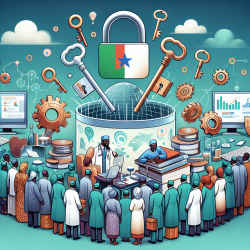The COVID-19 pandemic has posed unprecedented challenges for educational institutions worldwide. As schools grapple with the complexities of reopening safely, research provides invaluable insights into effective strategies that balance public health concerns with educational needs. A study titled Evaluating scenarios for school reopening under COVID19, conducted by researchers from Georgia Institute of Technology and other institutions, offers critical findings that can guide practitioners in refining their approaches to school reopening.
Key Findings from the Research
The study employed an agent-based simulation model to evaluate various school reopening strategies in Georgia during the pandemic. The scenarios included:
- Schools closed with online instruction for all students.
- Alternating school days where students attend in-person on different days.
- In-person instruction only for children aged 0-9.
- A regular reopening strategy with all students returning to in-person classes.
The research highlighted that hybrid models, which combine online and in-person instruction, significantly reduced infection rates compared to a full return to in-person learning. Universal masking further decreased infection rates across all scenarios. These findings emphasize the importance of flexible and adaptive strategies in mitigating virus spread while maintaining educational continuity.
Implications for Practitioners
For educators and administrators, these insights offer several actionable strategies:
- Adopt Hybrid Models: Implementing alternating attendance days or prioritizing younger children for in-person learning can reduce infection risks while supporting educational needs.
- Promote Universal Masking: Encourage mask-wearing among students and staff to lower transmission rates effectively.
- Flexible Reopening Dates: Delaying reopening dates can provide additional time to prepare and potentially reduce peak infection rates.
- Engage in Continuous Monitoring: Regularly assess local COVID-19 trends and adjust strategies accordingly to ensure safety and effectiveness.
The Path Forward
This research underscores the necessity of evidence-based decision-making in education during a pandemic. By integrating these findings into their planning, practitioners can enhance their ability to provide safe and effective learning environments. Furthermore, ongoing research is crucial as conditions evolve and new variants emerge. Educators are encouraged to stay informed through continuous engagement with current studies and data.
To read the original research paper, please follow this link: Evaluating scenarios for school reopening under COVID19.










